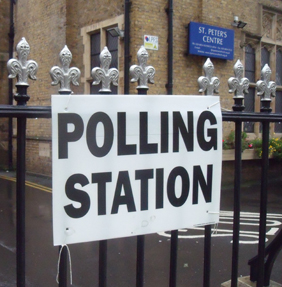Eleven councils are taking part in Voter ID pilots, at the May 2019 local elections. The UK Government says it’s to see how best to ensure the security of the voting process and reduce the risk of voter fraud; besides find the methods of ID that work best for voters. The Cabinet Office arranged pilots in five local authorities as part of the 2018 local elections.
Minister for the Constitution, Chloe Smith, said: “I am pleased to see that so many local authorities came forward to participate in the 2019 pilots so we can gain a deeper understanding of how voter ID will work on a wider scale – and what works best for voters. We want people to have confidence that our elections are safeguarded against any threat or perception of electoral fraud. People are already required to show ID to pick up a parcel from the Post Office, rent a car, or apply for benefits, and this is a common sense next step to securing the integrity of our elections.”
To verify that voters are who they say they are, each local authority will test one of four models of Voter ID checks:
photo ID
photo and non-photo ID
traditional poll cards
poll cards with scannable barcodes.
The Cabinet Office adds that it’s engaging with charities and civil society bodies – including members of the Accessibility of Elections Working Group – to ensure that the overall policy reflects the needs of all voters. Councils will provide alternative methods of ID to individuals who do not have a specified form of ID, free, so that everyone who is registered has the opportunity to vote. Voters in Pendle, East Staffordshire and Woking will be asked to show photo ID before they are given their ballot papers. Ribble Valley, Broxtowe, Derby, North Kesteven and Braintree will require voters to present either one form of photo ID or up to two forms of non-photo ID.
Mid Sussex, Watford and North West Leicestershire will test using poll cards as a means of identification.
Peterborough and Pendle will run a separate pilot, looking at the security of postal votes and providing extra guidance in postal vote packs. Proxy voters in Peterborough will also be required to show ID before they can vote. Northern Ireland has required paper ID to vote since 1985 and photo ID since 2003.
The Electoral Commission will carry out an independent evaluation of the schemes (a mix of rural and urban areas) and will publish findings in the summer of 2019. The Commission in its report on the 2017 general election found a positive overall picture but spoke of ‘wider risks to the administration of well-run elections, which are becoming increasingly apparent’. And in his 2016 report on electoral fraud, Sir Eric Pickles made several recommendations aimed at strengthening the integrity of proxy voting, including clarifying offences around compelling or preventing someone applying for a proxy vote.









